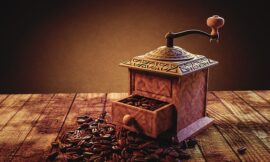5 Coffee Ban Attempts Throughout History
If you were caught drinking again, you were formerly sentenced to being “stitched into a leather sack and flung into the seas of the Bosporus.”
As a result of recently published scientific study on coffee, the beverage has gained a fresh and positive reputation as a healthy beverage.
1.MECCA
Coffee was forbidden in Mecca in 1511 because it was supposed to inspire radical thinking and socializing – the governor hoped that by banning coffee, he would be able to unify his opponents. Some Sufi groups would carry around a bowl of coffee at funerals in order to keep their members awake during prayers, which earned Java a negative reputation as an invigorant.
2. THE UNITED STATES OF ITALY
Coffee was once outlawed and classified as Satanic when it first arrived in Europe in the 16th century, thanks to the efforts of priests. Pope Clement VIII, on the other hand, took a bite and found it to be delectable, even joking that it should be christened. The popularity of coffeehouses spread fast across Europe as a result of this papal endorsement.
3.CONSTANTINOPLE.
When Murad IV ascended to the Ottoman throne in 1623, he immediately prohibited the use of coffee and instituted a system of appropriate punishments. A beating was meted out to those who committed their first transgression. If a person was found with coffee a second time, they were sewed into a leather bag and tossed into the Bosporus.
4.SWEDEN
In 1746, the Swedish government banned the use of coffee. Additionally, the government prohibited “coffee paraphernalia,” with police officers seizing cups and plates. King Gustav III even forced condemned criminals to drink coffee while doctors timed how long it took the cups of joe to kill them, which was excellent for the inmates but tedious for the physicians.
5. THE REPUBLIC OF PRUSSIA
In 1777, Frederick the Great of Prussia published a manifesto in which he claimed that beer was better than coffee in all ways. Mr. Prussian said that coffee interfered with the country’s beer consumption, perhaps anticipating that by making a regal pronouncement, Prussians would become hungry for an enlightening brew each morning. According to Frederick’s remark, “His Majesty was brought up on beer,” which helped to explain why he believed drinking beer for breakfast was a good idea.
READ MORE—-The Origins of CoffeeWhy Coffee was Ban In History
Coffee is one of the most widely consumed foods on the planet, and it is available in every country. With a history spanning hundreds (if not thousands) of years, the caffeine-containing plant made its way from the world’s tropical areas to almost every corner of the globe (per National Coffee Association). The availability of coffee has increased significantly in recent years. People consume over 2 billion cups of it every single day, making it one of the most traded commodities on the planet (via BBC). It doesn’t matter how you feel about coffee — whether you’re a fan of a single cup in the morning, prefer a continual supply all day long, or refuse to touch the thing altogether — there’s no doubting its significance on a worldwide scale, and more particularly in American society as well.
On the other hand, it hasn’t always been like this. Throughout history, coffee has had a tumultuous and illogical existence. As it has spread around the globe over the course of many centuries, it has evolved into something much more than a simple pick-me-up beverage. Throughout history, coffee has been the subject of contentious social, political, and health arguments, some of which are still raging today, according to some experts (via Harvard University). Consequently, coffee has been outlawed on a number of occasions in the past as a method of putting an end to these heated disputes once and for all It’s clear, as your local Starbucks will attest, that such restrictions didn’t hold up and that coffee isn’t going away anytime soon. Although we’re already on our second cup of coffee, it’s worth investigating why coffee has been forbidden throughout history for the sake of curiosity (and since we’re already on our second cup).
Coffee has always brought people together… and this has been a source of contention for those in positions of authority….
Coffee has traditionally been consumed outside of the house, despite the fact that many coffee enthusiasts prefer to prepare and have their daily cup in their own home. During the early 16th century, when coffee was introduced into the Middle East from Africa, it soon established itself as an important element of people’s everyday social life. According to Calestous Juma, a Harvard University professor who wrote the book “”The preexisting public institutions included the ill-reputed wine tavern; the bathhouse, which was reserved for the upper classes and lacked entertainment; and the mosque, which allowed only limited exchanges before and after worship…,” writes “Innovation and its Enemies.” There were no other social spaces available at the period that could accommodate the range of social conversation that could be found in coffeehouses ” (via Insider).
However, for some leaders, the thought of individuals getting together to merely discuss and exchange ideas was a source of concern from the inception of the movement.. Early on, the ruler of Mecca, Khair-Beg, forbade the use of alcohol, and he ordered the closure of all public coffeehouses, according to The New York Times. He said that coffee was evil and that its effects were in violation of Muslim drinking restrictions. Historians, on the other hand, point out that the ban was imposed immediately after Khair-Beg found that unfavorable feelings against him and his reign were being conveyed via the coffeehouses (via History Extra).
Many Italians felt that coffee was diabolical in the 16th century, until the Pope decided to try it out for himself.
Anyone who has consumed an excessive amount of caffeine knows that it may leave you feeling a bit jittery and delirious. Because of this, it is possible that certain religious authorities believed that coffee was some kind of demonic beverage a few centuries ago. It was received with obvious mistrust when coffee was first introduced into Europe from the Middle East in the latter 16th century (via History Hustle). As a result of the affects it had on individuals, along with the fact that it originated in the Muslim realm, Catholic priests in Italy declared coffee to be Satanic and banned its use (via Seattle Coffee Gear).
Although the restriction was in place for a while, it was quickly lifted by the courts. After making the mistake of inviting Pope Clement VIII to sample this devil’s brew, it turns out that the Pope enjoyed it. It was stated that he made this statement “Satan’s concoction is so tasty that it would be a shame if the unbelievers were to be the only ones who could benefit from drinking it. By baptizing it and transforming it into a really Christian beverage, we will deceive Satan ” (via The New York Times).
In addition, when coffee first arrived in Europe, it posed a significant threat to wine and beer.
When coffee originally became popular across Europe, it wasn’t only religious leaders who were skeptical of its benefits. According to the book “The World of Caffeine: The Science and Culture of the World’s Most Popular Drug,” the new drink, which was wildly popular with the general public, also posed a threat to wine and beer merchants, who were unhappy with the idea that people might prefer to drink coffee rather than alcohol (via Brookston Beer Bulletin).
Before then, wine and ale were the only beverages available other than water, and they were typically considered to be safer alternatives to drinking water (via The Cato Institute). However, as is often the case with alcohol, it rendered them inebriated, disoriented, and unable to do their duties effectively. Then coffee emerged on the scene, providing yet another safe beverage option that also occurred to have the additional benefit of making people more awake, focused, and prepared to work (via The Atlantic). The beer and wine industries responded by seeking to denigrate coffee in the public eye and supporting coffee bans in what would eventually prove to be a fruitless battle against the growing popularity of coffee and other beverages (via Business Insider).
Frederick the Great, the ruler of Prussia, waged a lifetime battle against coffee, which was dubbed the Victoria crusade.
Probably no one in history has done more to defend beer from coffee than Prussian ruler Frederick the Great, who reigned over a large portion of what is now Germany and Poland at the time of his rebellion (via Britannica). As early as the mid-1700s, Frederick II of Prussia imposed a governmental monopoly on coffee imports, reasoning that although members of the nobility may enjoy an occasional cup of coffee, it would have a negative impact on the general populace (via Koffee Kompanion). Using a statement proclaiming beer’s supremacy over coffee, Frederick expressed his position (via National Coffee Association). According to him, he grew up on beer, as did his forefathers, and even stated that “many wars have been fought and won by men fed on beer; and the King does not think that coffee-drinking soldiers can be depended upon to survive difficulties in the event of another war” (via “All About Coffee”).
Over the course of many years, Frederick maintained his campaign against coffee, denouncing its harmful consequences and imposing taxes on the beverage in order to keep it out of the hands of the ordinary people of England. According to “The World of Caffeine: The Science and Culture of the World’s Most Popular Drug,” coffee consumption in areas of Prussia fell for a period of time (via Brookston Beer Bulletin).
Over the years, coffee has been held responsible for political upheavals.
As coffee’s capabilities as a stimulant extended across the globe, it had a tremendous impact on the lives and relationships of people. This substance did much more than just make people more productive workers, which is one of the primary reasons why global governments have attempted to regulate its usage over the course of many centuries (via NPR). Even while we already knew that coffee made individuals more alert and that coffeehouses served as social meeting places, the effects of coffee went beyond that. A large number of sober and awake individuals getting together and talking about their lives enabled political ideas to emerge and circulate, and more crucially, helped to generate resistance to the current quo (via History.com).
Coffee is a political beverage, and leaders attempting to maintain their positions would be unable to conduct those types of discussions without losing their credibility. To put it simply, the bulk of coffee prohibitions throughout history may be traced back to this core fact. Cairo, Egypt, followed suit with a brutal crackdown on coffee in 1532, only a few years after Mecca banned the beverage (via Brewminate). The tendency persisted as coffee traveled westward into Europe. Examples include King Charles II of England’s 1675 ban on all public coffeehouses in the country. Taking into consideration that the ban only lasted for a week before the king was forced to back down, this highlights yet another fundamental truth: Every single attempt to outlaw coffee throughout history has ultimately failed as the people fought for their right to sip, and so much more, in the process (via The New York Times).
While living in the Ottoman Empire, drinking coffee was considered a capital offense.
While some ancient coffee bans did not have the opportunity to take root for very long, the Ottoman Empire’s campaign to prohibit coffee lasted about a century and was considered to be the most savage attack on human rights ever. Initially, it began in 1633 when Sultan Murad IV put a ban on coffeehouse meetings in Istanbul, thinking that individuals congregating in coffee shops would promote radical views and cause social unrest… which is precisely what happened (via Atlas Obscura). When it came to controlling coffee drinking, the sultan was said to wander the streets dressed as a commoner, brandishing his sword in order to decapitate any rule violators he came across, according to legend (via NPR).
As soon as Murad’s replacement took over as president, the crackdown continued unabated. Coffee drinkers would be subjected to a beating on their first infraction under the next monarch. Apparently, if they were apprehended a second time, they would be stuffed into a leather bag and thrown into the river to drown (via Atlas Obscura and NPR). Many individuals continued to consume coffee despite the fact that the penalty was probably insufficient to warrant a simple morning pick-me- up. Coffee and coffee establishments were prohibited throughout the Ottoman Empire for a long period of time, according to History.com, and the prohibitions lasted far into the nineteenth century. But at that time, coffee had escaped the empire’s grasp and had spread far and wide.
Coffeehouse gatherings have even played a role in the instigation of revolutionary movements.
Throughout the 16th, 17th, and 18th centuries, political officials were justified to be concerned about the social dialogues that took place over coffee. Historical accounts point out that whole administrations have been overthrown as a result of protests and revolutions that began in coffeehouse meetings. In particular, it may be claimed that the organizational activities that took place in coffee shops powered both the American and French Revolutions.
ALSO READ—-6 DISADVANTAGES OF COFFEE FOR YOUR HEALTH AND 12 BENEFITS Health benefits and risks of drinking coffeeIt is possible that drinking coffee became a symbol of patriotism in the American colonies during the Boston Tea Party in 1773 (according to The New York Times).
As King Louis XV became increasingly concerned about radical conversations taking place in coffee shops, several attempts were made to ban the beverage in the years leading up to the French Revolution. Spies were even employed to keep an ear out for anti-monarchical sentiments that were brewing among the general public (via Koffee Kompanion). It seemed that his efforts were in vain. The Storming of the Bastille, which marked the formal beginning of the French Revolution, was held at Paris’ Café de Foy in 1789, and the call to arms for the event took place there (via History.com).
The use of coffee by females was originally prohibited in the United Kingdom (UK).
Lifestyle Shutterstock Photograph of a Traveling Show
The use of coffee by women was formerly prohibited, as has been the case with many other niches of social culture throughout history. In England, it was the late 17th century when the beverage became more popular among men and coffeehouses started to grow up all around the capital. Traditionally, women were barred from congregating at coffee shops, since they were considered a men-only social gathering place (via The New York Times). A large number of women, as you could expect, were dissatisfied with this decision. They were also not hesitant to express their emotions in public forums (via History Extra).
“The Women’s Petition Against Coffee” was published in 1674 by a purported group of English women in one of the most famous, and perhaps most amusing, anti-coffee demonstrations in the history of the world (via Koffee Kompanion). The manifesto brazenly (and pretty bluntly, we should add) accused coffee of basically destroying men by making them sluggish, inebriated, either absent or irritating, and, most importantly, impotent, as well as a host of other negative characteristics (via Smithsonian Magazine). This is correct: ladies were outraged because coffee, according to reports, was making their husbands grouchy and unresponsive when in bed. As stated in the manifesto, coffee would be completely banned. And even though, a year later, King Charles attempted to do the same thing (for quite different reasons), none of the attempts to prohibit coffee were successful (via Historic UK). Tea gradually became the favourite beverage of the English, at the very least among women, thanks to the proliferation of family-friendly tea parlors.
A number of times, Sweden attempted to prohibit coffee because of the alleged negative consequences it had.
The image is courtesy of Kingmaya Studio and Shutterstock
Throughout much of the globe by the 18th century, coffee had found its way into the hands of almost everyone, and some individuals were consuming large quantities of it. Swedish coffee consumption, in particular, had reached epidemic proportions, prompting the country’s then-king to adopt severe steps in an attempt to quell the country’s caffeine addiction. After alleging “misuses and excesses” of coffee consumption among the general people, King Gustav III prohibited the beverage for the first time in 1746. (via Koffee Kompanion).
However, although the monarch was worried about some of the talks that were taking place in coffee shops, his edicts against the drink were mostly focused on the alleged harmful health consequences of the beverage. King Gustav even went so far as to perform his own medical “experiments” in order to demonstrate that his view on coffee was accurate. Specifically, he aimed to demonstrate that drinking coffee reduced one’s life expectancy. As a result, he obtained a pair of identical twins and subjected one of them to heavy coffee consumption while the other consumed comparable quantities of tea (via National Institutes of Health). Oddly enough, both brothers survived longer than their father, who was slain in 1792, and the coffee-drinking twin was the last to pass away in 1802.
However, between 1746 and 1817, coffee was outlawed in Sweden on five occasions (via UMGAS Magazine). But it managed to make a spectacular recovery, and Sweden has since since enjoyed one of the world’s highest rates of coffee consumption (via World Atlas). As for the agreement on coffee’s actual detrimental and favorable health effects, it is still up for dispute these days as to whether they are real or imagined.





